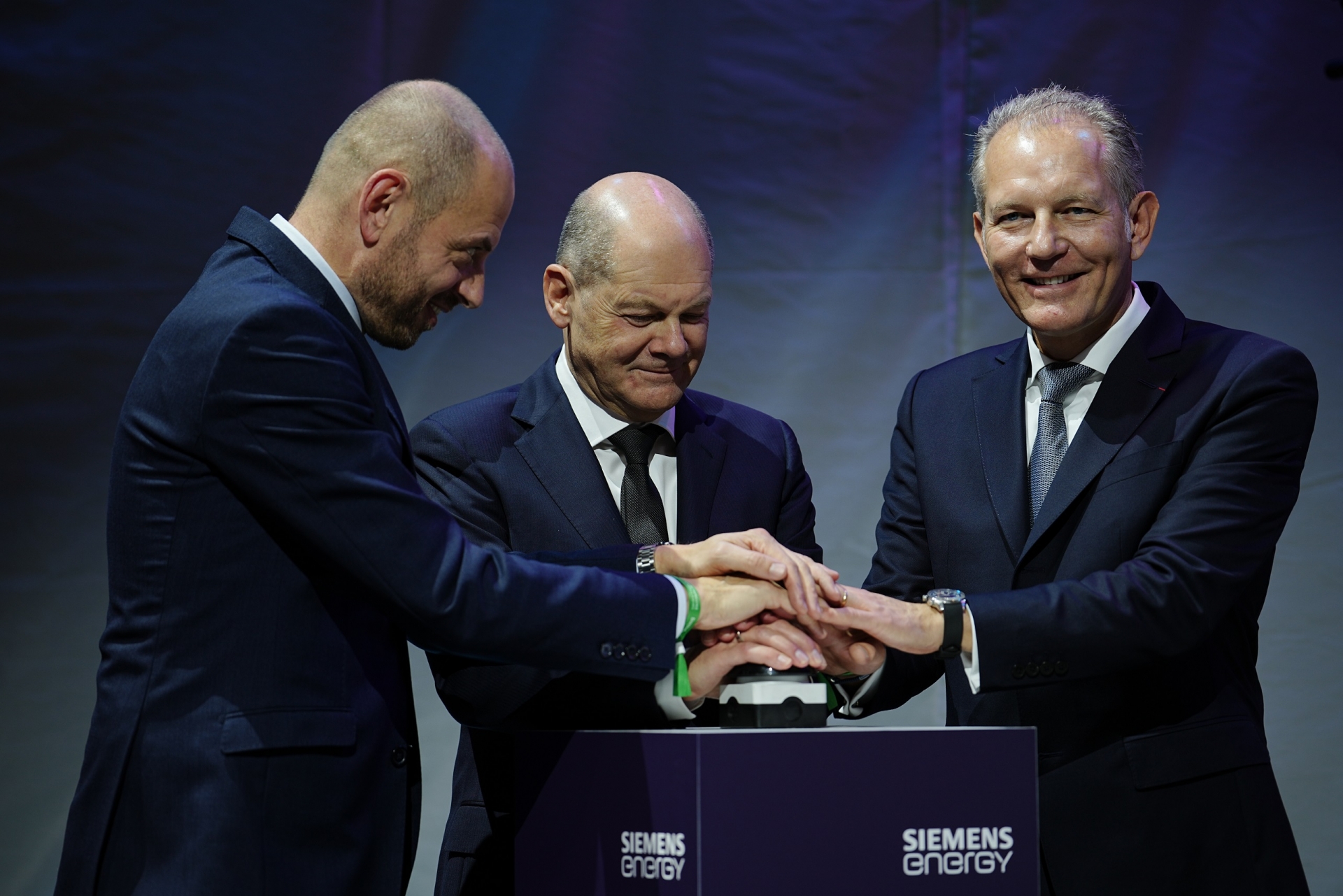
CAPTION: German Chancellor Olaf Scholz (M) presses a button to open Siemens Energy's electrolyzer production facility together with Christian Bruch (L), CEO of Siemens Energy, and Francois Jackow, CEO of Air Liquide. (picture alliance/dpa/Kay Nietfeld)
The German energy company Siemens Energy has started to produce machines, so-called electrolyzers, in Berlin that are important for the production of hydrogen.
The production capacity in the first year will be 1 gigawatt, CEO Anne-Laure Parrical de Chammard announced in Berlin. Next year, it will be 2 gigawatts, and from 2025 the capacity will increase to 3 gigawatts. "This means that we would produce around 20 gigawatts of electrolyzer capacity by 2030," she said. "That is twice as much as the target for Germany and half as much as the European Union's target."
Electrolyzers split water into its components oxygen and hydrogen using electricity. The hydrogen can be stored, transported and later burned or converted into electricity, for example. Unlike fossil fuels, no CO2 is released during these processes. Hydrogen is therefore considered an important component for a climate-neutral energy transition, especially in industry. The prerequisite is that the electricity required for the electrolysis process comes from green sources. The German government wants to expand hydrogen capacities in Germany to 10 gigawatts by 2030.
Siemens is cooperating with the French gas company Air Liquide on the production in Berlin and is investing around 30 million euros in the new production line.

Notice: No person, organization and/or company shall disseminate or broadcast the above article on Xinhua Silk Road website without prior permission by Xinhua Silk Road.




 A single purchase
A single purchase









